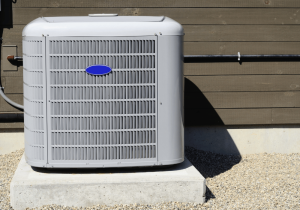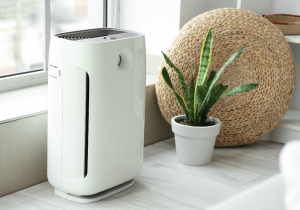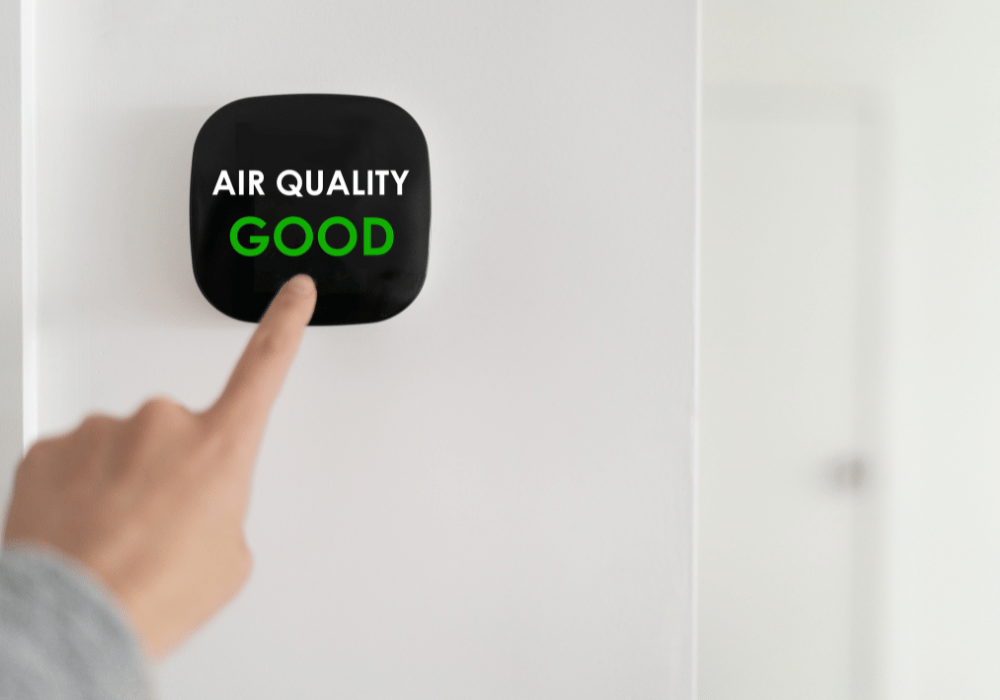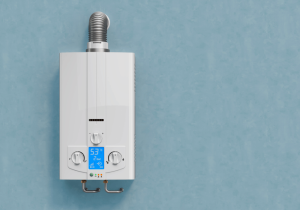Indoor air quality is often overlooked, yet it plays a significant role in our health and well-being. Considering that we spend approximately 90% of our time indoors, the air we breathe inside our homes and workplaces matters more than we realize. Pollutants, allergens, and even invisible particles like mould spores can negatively impact respiratory health and allergies. Luckily, one of the most powerful tools to combat poor indoor air quality is likely already in your home or office: your HVAC system.
This guide will help you understand how your HVAC system can enhance your indoor air quality and provide actionable steps to make the air in your space healthier for you and your loved ones.
 Understanding Your HVAC System
Understanding Your HVAC System
To tackle indoor air quality issues, it’s important to understand how your HVAC system works. HVAC stands for Heating, Ventilation, and Air Conditioning. This system is more than just a temperature regulator; it also circulates and filters the air in your space.
By design, a working HVAC system is meant to deliver a steady flow of clean air at a comfortable temperature and humidity level. However, without proper care, it can also accumulate and redistribute pollutants, thereby inadvertently worsening your indoor air quality.
Key components of your HVAC system that impact air quality include:
- Air Filters: Responsible for capturing dust, pollen, and other pollutants.
- Ductwork: Distributes air throughout your home; dirty ductwork can carry contaminants.
- Ventilation: Brings fresh outdoor air inside while exhausting stale indoor air.
Knowing how these components function as part of a whole-system approach will help you see where you can make improvements.
HVAC Filters: The First Line of Defence
Your air filter is your HVAC system’s first line of defence against airborne contaminants. The efficiency of your filter directly impacts how clean the circulated air will be.
Choosing the Right Filter
Not all air filters are created equal. Filters are graded using the MERV (Minimum Efficiency Reporting Value) scale, which ranges from 1 to 16.
- MERV 1–4: Captures larger particles like lint and dust mites, but isn’t effective for smaller pollutants.
- MERV 5–8: Standard filters for residential use, ideal for removing dust, pollen, and mould spores.
- MERV 9–12: Better for high-traffic homes with allergens, capturing smaller particles.
- MERV 13–16: Often used in hospitals or spaces requiring high filtration standards; captures bacteria and smoke.
For most homes, filters with a MERV rating of 8–12 offer a good balance between affordability and efficiency. However, if you have allergies, asthma, or pets, consider upgrading to a higher-rated filter.
Regular Filter Replacement
Replacing your air filter regularly is crucial. Over time, filters become clogged with debris, limiting airflow and forcing your HVAC system to work harder. As a general rule:
- Replace basic filters every 1–3 months.
- Higher-efficiency filters can last 3–6 months but require inspection.
Pro Tip
Set reminders or sync filter replacement schedules with seasonal HVAC checkups to keep your system running smoothly.
Regular HVAC Maintenance for Air Quality
Even the best air filters can only do so much if your HVAC system isn’t maintained. Regular maintenance ensures all components function effectively and prevents pollutants from building up in your system.
Essential Maintenance Tasks
- Professional Inspections: Have an HVAC technician inspect your system at least once a year. This ensures components like the blower, coils, and ductwork are in good shape.
- Clean Ductwork: Dust, pet hair, and other debris often accumulate in your ductwork, reducing air quality. Consider professional duct cleaning if there’s visible buildup or musty odours.
- Check Humidity Levels: HVAC systems control humidity as well. High humidity can encourage mould growth, while low humidity worsens respiratory issues. Add a dehumidifier or humidifier if needed.
Regular maintenance doesn’t just support cleaner air; it also improves energy efficiency and extends the life of your HVAC system.
Advanced Indoor Air Quality Technologies
While regular maintenance and filter upgrades are effective, advanced technologies can further improve indoor air quality. Today’s HVAC systems integrate cutting-edge solutions for more comprehensive air purification.
Add-ons for Better Indoor Air Quality
- UV-C Light Systems: Installed inside the HVAC unit, UV-C lights target and neutralize viruses, bacteria, and mould spores.
- Electronic Air Cleaners: Use electrostatic charges to capture microscopic particles, including allergens and fine dust.
- Energy Recovery Ventilators (ERVs): Swap stale indoor air with fresh outdoor air while maintaining energy efficiency. Ideal for airtight, modern homes.
- HEPA Filters: These high-efficiency particulate air filters are among the best at capturing 99.97% of airborne particles as small as 0.3 microns.
While these upgrades often require an upfront investment, they’re valuable additions for homes in urban or high-pollution areas and can contribute significantly to healthier indoor air.
 Plants and Air Purifiers: Complementary Solutions
Plants and Air Purifiers: Complementary Solutions
While your HVAC system does the heavy lifting in filtering and circulating air, supplementary solutions can enhance its effectiveness.
Indoor Plants
Certain houseplants naturally purify the air, absorbing toxins while providing fresh oxygen. Some choices include:
- Spider Plant: Great for reducing carbon monoxide and formaldehyde.
- Peace Lily: Effective against benzene and certain volatile organic compounds (VOCs).
- Snake Plant: A hardy plant that removes toxins like xylene and toluene.
Portable Air Purifiers
Standalone air purifiers are another excellent tool, especially for high-traffic areas or rooms where your HVAC system doesn’t adequately reach. Look for purifiers with HEPA filters for the best results.
Improving indoor air quality isn’t just about clean air; it’s about creating a healthier, more comfortable living environment for you and your family. By understanding and leveraging the capabilities of your HVAC system, you can tackle pollutants, allergens, and harmful particles where they start. From upgrading your air filters and scheduling routine maintenance to exploring advanced indoor air quality technologies and supplementing with plants or purifiers, small changes can lead to significant improvements.
Take charge of your indoor air today. Consult with a trusted HVAC professional to identify areas for improvement, and enjoy the peace of mind that comes with healthier, fresher air in your space.



